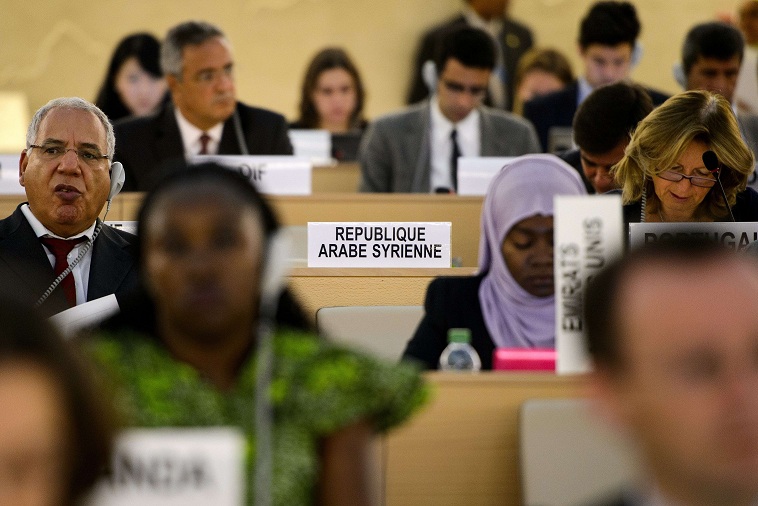The war between Iran and Israel entered its fifth day on Tuesday, marked by intensifying air and missile exchanges and mounting international efforts to prevent a wider regional conflagration.
Iran launched a fresh wave of 20 to 30 missiles targeting Tel Aviv early Tuesday, according to Israeli media reports. Israel’s emergency services confirmed five injuries, and damage to two buildings in Herzliya—one of them an eight-storey residential block. Rescue teams were deployed to search for survivors trapped under the rubble. In Bat Yam, 80 buildings were reportedly affected by the strikes, with 22 deemed structurally unsafe and slated for demolition. Local authorities estimate it could take up to five years to rebuild the area.
Tehran claimed it had struck Israel’s military intelligence headquarters “Aman” and a Mossad planning facility in Tel Aviv. In response, Israel carried out new airstrikes deep inside Iranian territory, including in Tehran and the Miets region.
The Israeli occupation army confirmed the assassination of General Ali Shadmani, describing him as Iran’s de facto “chief of war staff and highest-ranking military commander.” The IDF said it continued operations targeting Iranian missile launch platforms and maintained freedom of movement in Iranian airspace.
Meanwhile, the International Atomic Energy Agency (IAEA) reported that Iran’s Natanz nuclear facility sustained direct hits, with damage to its centrifuge halls. Iranian air defences were activated in Nahavand and Isfahan to intercept further threats. The Iranian army said it had deployed hundreds of long-range “Arash”-type suicide drones, which it claimed struck strategic sites in Tel Aviv and Haifa.
Israeli Defence Minister Israel Katz and Chief of Staff Herzi Halevi convened a high-level security meeting on Tuesday. Katz issued a stark warning to Iran’s Supreme Leader Ali Khamenei, comparing his potential fate to that of Saddam Hussein. He vowed continued strikes and further evacuation orders in Tehran, adding that Israeli forces were close to destroying at least 10 nuclear sites and would “soon deal with Fordow.”
Iran dismissed Israeli claims of having destroyed its missile arsenal. Senior Revolutionary Guard adviser Ahmad Vahidi asserted that Iran had not yet deployed its most advanced missiles and was prepared for a drawn-out conflict.
On the diplomatic front, European Union foreign policy chief Kaja Kallas urged restraint, reiterating that diplomacy remains the most viable path to prevent Iran from acquiring nuclear weapons. French Foreign Minister Jean-Noël Barrot expressed France’s opposition to a nuclear-armed Iran—warning such an outcome would endanger both Israel and Europe—but clarified that Paris does not support Israeli strikes and remains committed to a non-military resolution.
In Washington, former President Donald Trump called for the “immediate evacuation” of Tehran in a social media post, criticising Iran for missing earlier diplomatic opportunities. Speaking to reporters aboard Air Force One while returning early from the G7 Summit in Canada, Trump rejected the idea of a ceasefire, stating he wanted a “real end” to the conflict. The White House later confirmed that Trump would cut short his trip and return to Washington a day ahead of schedule “due to events in the Middle East.”
Fox News reported that the US National Security Council had been placed on alert, and that Trump had instructed the Pentagon to prepare for possible contingencies. Defence Secretary Pete Hegseth stated that while the US remains open to a new nuclear agreement, it would not hesitate to protect its regional assets.
According to Axios, the White House is weighing a diplomatic meeting this week between US envoy Steve Witkoff and Iranian Foreign Minister Abbas Araghchi as part of a last-ditch effort to end hostilities and revive nuclear talks. A senior US official confirmed the meeting is under active consideration.
In a separate phone call with Polish Foreign Minister Radosław Sikorski, Araghchi warned that Israel was attempting to expand the conflict and condemned attacks on Gulf oil infrastructure. He urged Europe to take a “responsible stance” against what he described as Israeli violations of international law. Poland, which currently holds the rotating presidency of the European Union, expressed deep concern and called for immediate de-escalation.
Back in Israel, the economic toll of the war began to show. Fuel giant Sonol announced a sharp reduction in supply following Iranian strikes that caused heavy damage to Bazan’s oil refinery in Haifa. Meanwhile, El Al Airlines confirmed it had received government clearance to begin evacuating Israeli citizens stranded in Europe, with flights expected to commence on Wednesday. All outbound commercial flights from Israel remain suspended.

